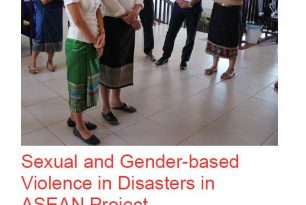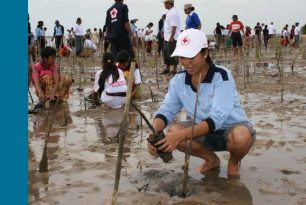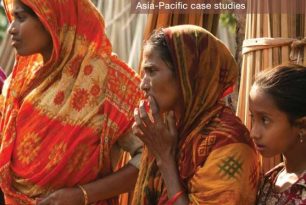The Responsibility to Prevent and Respond to Sexual and Gender-based Violence in Disasters and Crises (Cambodia)
![]()
The Responsibility to Prevent and Respond to Sexual and Gender-based Violence in Disasters and Crises (Cambodia)
![]()

The progress report details the progress of the research which has been initiated by IFRC Asia Pacific Regional team with the ASEAN Committee on Disaster Management (ACDM) Working Group on Prevention and Mitigation in collaboration with their membership. It addresses the issues of gender and sexual and gender-based violence (SGBV) in emergencies, with a specific focus on SGBV before, during and after disasters in the ASEAN region.
![]()

This report is the result of an integrated research process that combined desk-based legal research with stakeholder interviews in-country, followed by a multi-stakeholder consultation workshop held in February 2016 to verify the research findings and explore relevant issues with participants. It provides a ‘legal mapping’ of the laws and regulations that address disaster risk reduction (DRR) in Indonesia, analysing them against the questions contained in the Checklist and assessing their implementation based on stakeholder feedback and secondary sources.
![]()

This report follows on from the global study Unseen Unheard: gender based violence in disasters which saw research being conducted in 9 countries globally, and included Bangladesh, Myanmar and Samoa from the Asia Pacific region. The Asia Pacific case studies provide an overview of gender-based violence (GBV) within each country context, as well as presenting findings and key recommendations with regards to 1) Awareness and understanding on GBV occurrence during disasters; 2) Availability and access to services; 3) Safety and security and; 4) Livelihoods and migration.
![]()